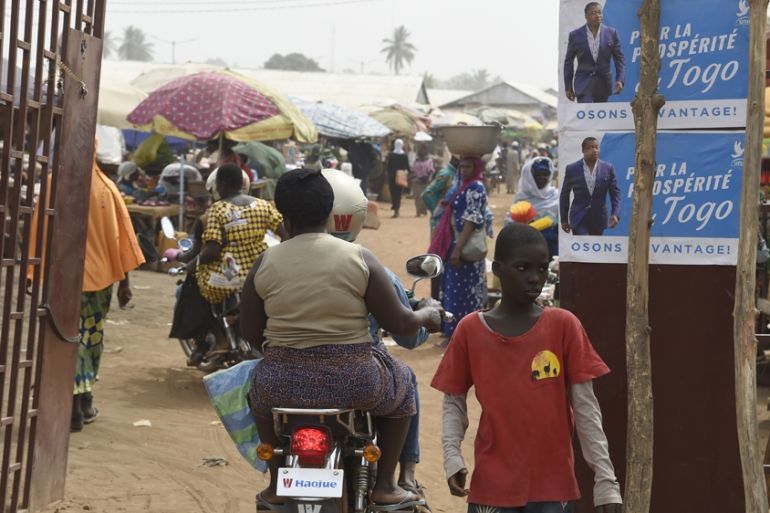Togo election: Main observer group barred from monitoring
Saturday’s vote is widely expected to return Faure Gnassingbe as president for a fourth-straight term.

Togo‘s national election commission has revoked a main independent observer group’s accreditation to monitor the country’s presidential election, just days before the vote is due to take place.
Long-standing President Faure Gnassingbe is widely expected to win Saturday’s election, extending his family’s decades-long rule after seeing off a wave of anti-government protests in 2017 and 2018.
Keep reading
list of 3 itemsTogo turns former colonial palace into flagship art centre
Chocolate: A Taste of Independence in Togo
In a letter dated February 17, the commission said it had cancelled the accreditation of the National Consultation of Civil Society of Togo to field their 500 observers nationwide, accusing it of “preparing to carry out interference” in the vote.
The move came after authorities previously blocked Catholic Church monitors from observing the election, which government critics allege will not be free and fair.
When the government of #Togo cancel observers credential of the largest independent civil society organization, one must be concerned in the election this Feb, 22. pic.twitter.com/uGPMwkXiEZ
— Togo Civil League (@tcl_togo) February 19, 2020
As the electoral campaign is under way, Togolese have to decide whether to grant a fourth term for Gnassingbe. The incumbent 53-year-old leader took office in 2005 after the death of his father Eyadema Gnassingbe, who led the country for 38 years after seizing power in a coup in 1967.
A series of major protests swept the country of some eight million people in 2017 and 2018 demanding that Gnassingbe leaves power. However, demonstrations were choked by a fierce government crackdown and splits among the opposition, with Gnassingbe’s grip now appearing as solid as ever.
The president pushed through constitutional changes in May allowing him to stand again this year, and potentially stay in office until 2030.
The constitutional change caps the presidential mandate to two five-year terms, but does not take into account the three terms Gnassingbe has already served
|
|
“President Gnassingbe supporters believe that he provides the security and stability for the Togolese,” Al Jazeera’s Ahmed Idris, reporting from Togo’s capital, Lome, said.
“But the opposition says it can only grow the economy and bring prosperity to Togo,” Idris said.
While reviving the economy is a concern for many who live in rural areas where 60 percent of people lack access to electricity and clean water, some believe that reforms alone would not be enough to solve their problems.
“There is widespread poverty among the population,” Togolese journalist Carlos Ketohou told Al Jazeera.
“There is little or no economic empowerment for the poor. Some voters want a change of the current regime, to them it will mean economic freedom,” said Ketohou.
According to the World Food Programme, about half of the population is affected by food insecurity, while almost 70 percent of rural households live below the poverty line.
Meanwhile, Gnasssingbe has promised to create 500,000 jobs across the country by 2022 to ease the frustrations of the large number of unemployed youths in the country.
But some doubted the upcoming ballot could create meaningful change.
“I am not going to vote,” said student Laure Dzossou-Afanlete.
“I can’t go and queue to cast my ballot for a change that never comes. When I know my vote will make a difference, maybe I will change my mind.”